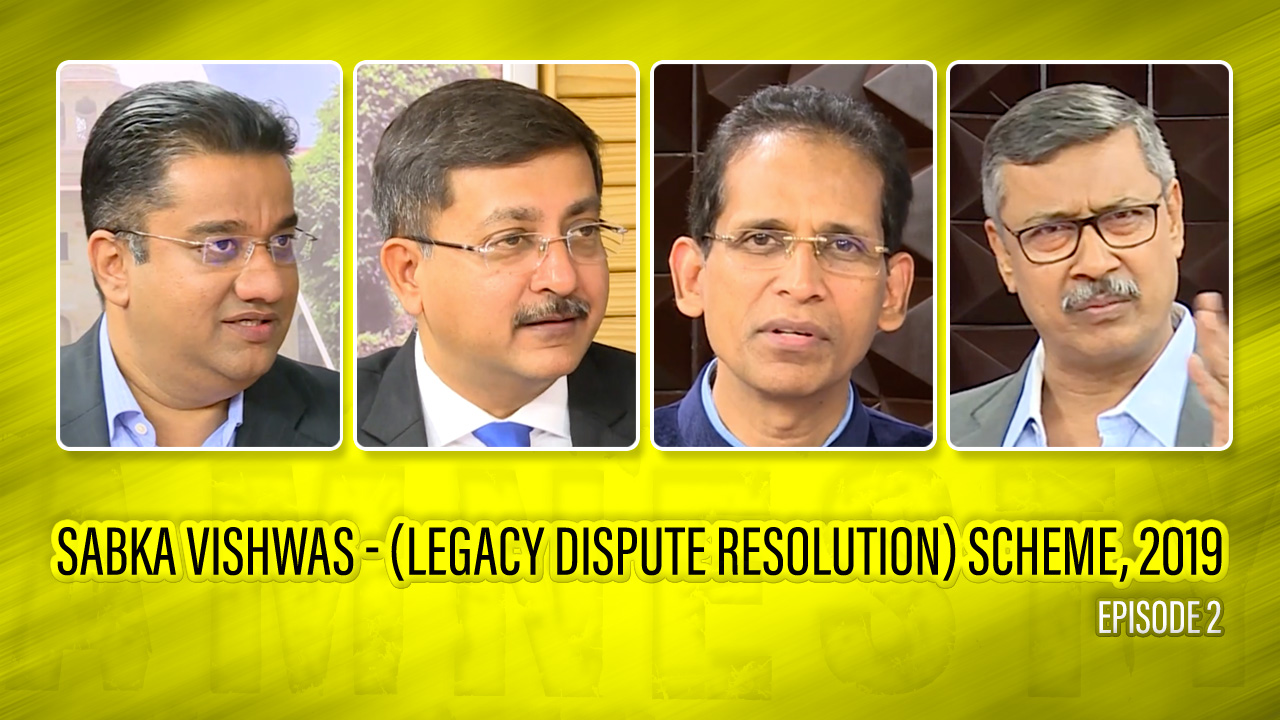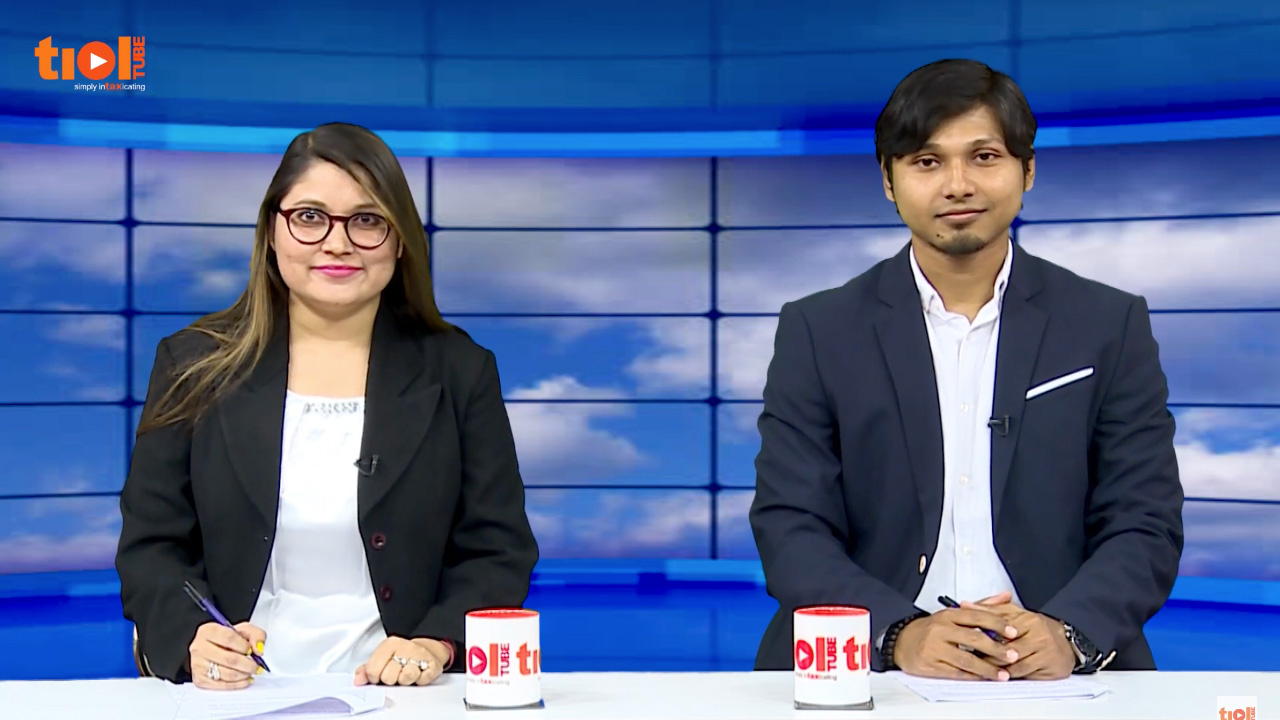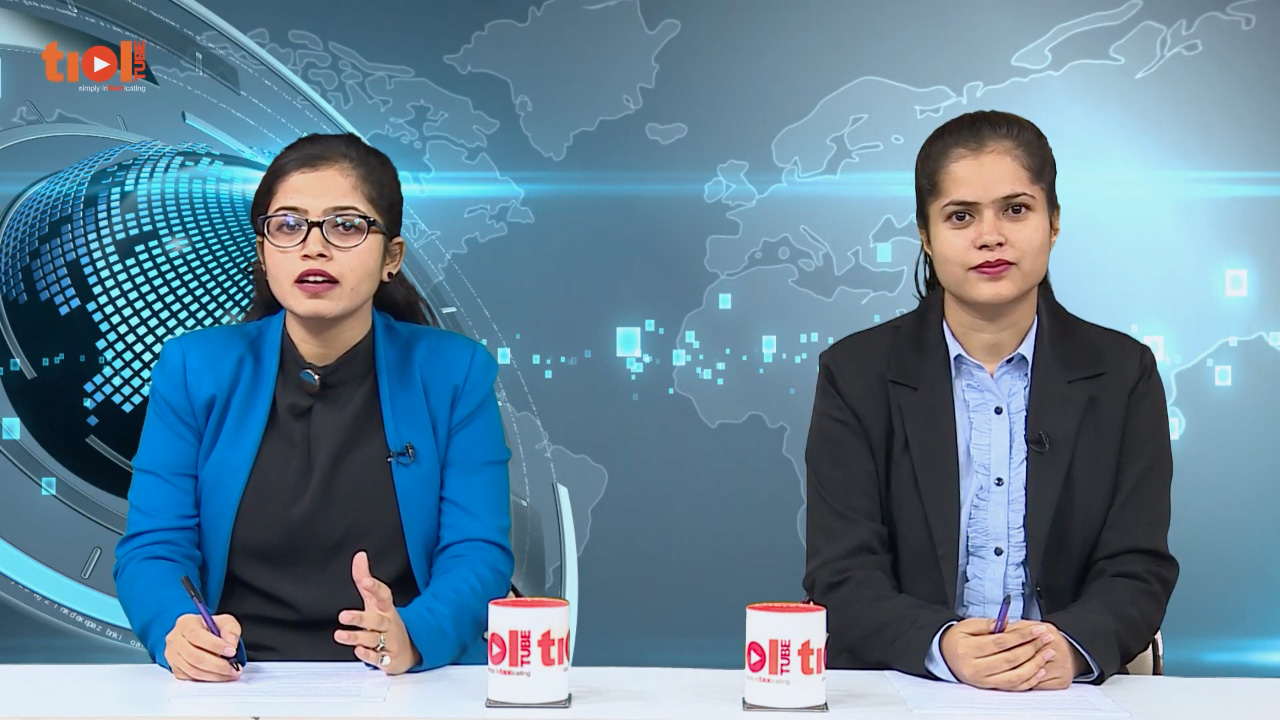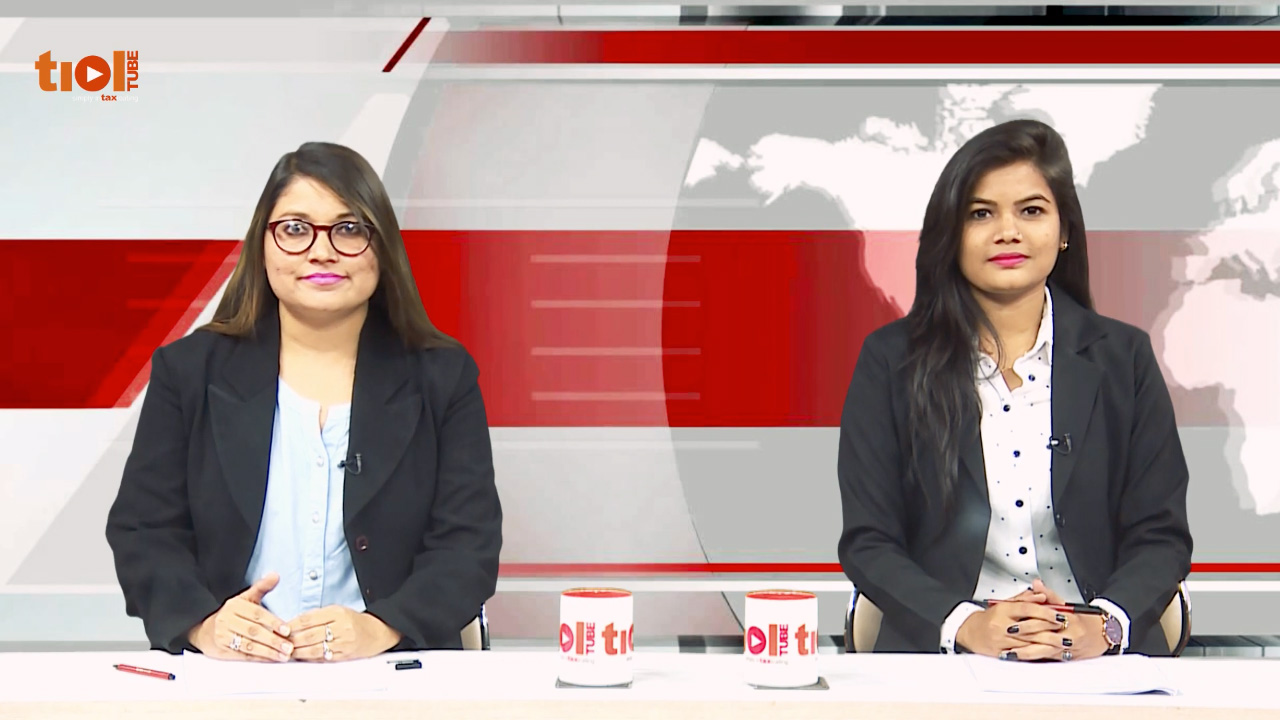SERVICE TAX
2019-TIOL-3088-CESTAT-MUM
Prashant Trading Company Vs CCGST
ST - The assessee is engaged in providing renting of immovable property service - On the basis of intelligent reports, it was found that the assessee was not discharging service tax on the rent collected from their tenants - Since the arguments about the extended period is very vital issue therefore, firstly this point will be decided without giving into other aspects of the matter - Although this issue was raised before the Commissioner also but no finding has been recorded - It is not disputed that earlier also a SCN was issued to assessee for the same issue concerning the same licensee, covering the period April, 2009 to August 2009 - If that is so and if the department is aware about alleged misdeeds in the year, 2010 itself, when the first SCN was issued, then why the department waited for three long years for issuing the second SCN for the same issue that too by invoking the extended period - It is legally unsustainable - The first/earlier SCN dated 08/10/2010 was issued to assessee covering the missing interregnum period of the second SCN i.e. April, 2009 to August, 2009, therefore the fact about non-payment of Service tax by assessee was within the knowledge of the department - The extended period could not have been invoked in the second SCN - The Supreme Court in the matter of Nizam Sugar Factory 2006-TIOL-56-SC-CX has laid down that when the first SCN was issued, all the relevant facts were in the knowledge of the authorities and later on while issuing the second SCN, the same/similar facts could not be taken as suppression of fact on the part of assesee as these facts were already in the knowledge of the authorities - Accordingly, without going into the other aspects of the matter, the appeal filed by assessee deserves to be allowed on the point of limitation itself: CESTAT
- Appeal allowed: MUMBAI CESTAT
2019-TIOL-3087-CESTAT-MUM
Owens Corning India Ltd Vs CST
ST - Admittedly the demand has been confirmed against assessee in respect of four services namely; Franchise Services, Consulting Engineer Services, Technical Testing and Analysis Services and BAS - As regards to demand on services received by assessee from overseas service providers under the category of Consulting Engineer Services and Technical Testing and Analysis Services, the amount paid by assessee was appropriated against the demand and penalties were set aside by extending the benefit of Section 80 - Assessee was engaged in selling the goods manufactured by their foreign counterparts namely OC HK and OC A in India - For undertaking the sale of such goods, assessee was receiving certain commissions from those foreign companies - Undisputedly the said commission was received in convertible foreign exchange - As per the assessee, during the period prior to introduction of Export of Service Rules, 2005, i.e. 14.03.2005, the benefit of exemption under Notfn 21/2003 should have been extended by Commissioner to them - The Commissioner has in his order not denied the admissibility of the benefit of said exemption notification but has only stated that assessee have failed to substantiate their claim under the said notification - The services of commission agent provided by assessee to their foreign counterparts have been provided by assessee for the sale of goods in India, is nothing but service provided/ used by the recipient of service in India - The services have been consumed in India, no merits found in the submission made by assessee, that the services provided by them were "export of services" - No reason found to differ from the findings recorded by Commissioner in his order for invoking the extended period of limitation - Penalties leviable on assessee for the various acts of commission under Section 76, 77 and 78 of FA, 1994 are upheld - Effectively the demand which is determined against the assessee is only in respect of "Business Auxiliary Services" - Since assessee have not provided the details of said services in their ST-3 return and have not paid the service tax in respect of these service, the penalties levied in respect of the services upheld under the section 76, 77 and 78 - However the quantum of penalty need to be redetermined after re-determining the demand in respect of these services: CESTAT
- Appeal partly allowed: MUMBAI CESTAT
2019-TIOL-3086-CESTAT-ALL
Krishi Utpadan Mandi Samiti Vs CCE
ST - The assessee is a statutory body under U.P. Krishi Utpadan Mandi Adhiniyam, 1964 and have not charged Service Tax from the receivers of service being renting of immovable property - Accordingly, it is pleaded that cum-duty benefit for calculation of service tax be allowed - It is also urged that the assessee being a Statutory body, the compliance under Service Tax was not made only due to lack of knowledge and/or instructions from the Administrative Authority of assessee - The transaction in dispute is duly recorded in books of accounts, ordinarily maintained by assessee - The demand have been raised on the basis of information furnished to Revenue by the assessee - It is a fit case for allowing the cum-duty benefit for calculation of Service Tax - There is no contumacious conduct or suppression of facts or deliberate default in compliance with the provisions of the Service Tax Act and Rules on the part of assessee and accordingly, the penalty under section 76, 77 and 78 of the Act are set aside - So far, late fee under Section 70 read with Rule 7 is concerned, the same is modified holding that penalty under Section 70 read with Rule 7 would be payable for default after 27th May, 2011, when Revenue initiated enquiry - It is facts on record that each Mandi Samiti is constituted separately with separate PAN numbers, henceforth eligible for basic exemption subject to satisfaction of other conditions specified in Notfn 06/2005-ST and as amended from time to time - Accordingly, the appeals are allowed in part and remanded to the Adjudicating Authority for re-calculation of tax: CESTAT
- Appeal partly allowed: ALLAHABAD CESTAT
CENTRAL EXCISE
2019-TIOL-3091-CESTAT-AHM
Sanjay Agarwal Vs CCE & ST
CX - The assessee is an employee of M/s Chandra Pretecto Ltd. - The penalty of Rs. 10 Lacs under Rule 26 of CER, 2002 was imposed upon assessee in connection with duty demand confirmed against M/s Chandra Pretecto Ltd. - The demand against company was confirmed on the ground that the company had cleared the goods at concessional rate in DTA before obtaining permission from Development Commissioner and also required NFE was not achieved, therefore, demand was confirmed and penalty on others including the assessee was imposed - The consequential penalty to the demand of duty in respect of consignment cleared during the period 01.01.2008 to 07.05.2008 during which period, the assessee was not employee in the company, therefore, whatever clearances were made, the assessee had no role - Since the assessee has no dealt with the goods for which the demand was confirmed and even he was not involved in making any documents related to such consignments, he cannot be implicated in the case of short payment of duty committed by the company, accordingly, no reason found for imposition of any penalty upon assessee under Rule 26 - Accordingly, the penalty is set aside: CESTAT
- Appeal allowed: AHMEDABAD CESTAT
2019-TIOL-3090-CESTAT-DEL
R And H Industries Vs CCGST
CX - While scrutinising ER-1 Return for the month of October, 2013, Revenue observed that out of the tax payable, assessee has short paid the excise duty - This amount was deposited by assessee vide challan and the interest was also paid for the period of default vide separate challan of even date - Revenue states that under the provisions of Section 8(3A) of CEA, the assessee cannot utilise the cenvat credit for payment of duty during the period of default - Accordingly, the amount of cenvat credit utilised during the period December, 2013 to October, 2014 was proposed to be demanded with further proposal to impose penalty - In view of the law explained by Delhi High Court in case of Space Telelink Ltd. , the Commissioner (A) has erred in confirming the demand under Rule 8(3A) along with penalty under Rule 25 of Central Excise Rules - There was no default or tax in arrear on the day of issue of SCN - Accordingly, the impugned order is set aside: CESTAT
- Appeal allowed: DELHI CESTAT
2019-TIOL-3089-CESTAT-MUM
Maneesh Pharmaceuticals Ltd Vs CCE & ST
CX - The assessee, a job worker, paid duty by adopting value of clearance on cost construction basis as per Rule 8 of Central Excise Valuation (Determination of Price of Excisable Goods) Rules, 2000 - On clearance made to one M/s Serum Institute, as manufacturer on account, duty was assessed on transaction value as per Section 4(1)(A) of CEA 1944 - SCN was issued seeking recovery of duty on physician samples - Thereafter, duty demand was confirmed along with equivalent penalty u/s 11AC of the Act.
Held - The assessee did not clear physician sample except to principal manufacturer and to M/s Serum Institute - The determination of assessable value on the basis of Rule 4 of Central Excise Valuation (Determination of Price of Excisable Goods) Rules, 2000 cannot be held to apply in this circumstances - Hence the orders in challenge merit being quashed: CESTAT
- Assessee's appeal allowed: MUMBAI CESTAT
CUSTOMS
2019-TIOL-2447-HC-P&H-CUS
Century Knitters India Ltd Vs UoI
Cus - The Petitioners realized export proceeds, however DRI initiated an investigation against them alleging that Petitioners are fraudulently availing duty drawback by grossly overvaluing the goods in export documents - The DRI searched various premises of Petitioners and concluded that they had mis-declared value of goods - A SCN was issued calling upon the Petitioners to show cause as to why declared FOB value of exported goods should not be rejected in terms of Rule 8 of CVR, 2007 r/w Section 14 of the 1962 Act and re-determined in terms of Rules 6 & 8 of Valuation Rules, 2007 - I ssues raised in present petitions are squarely covered by judgment in Famina Knit Fabs 2019-TIOL-2208-HC-P&H-CUS and Jairath International and another - In both the judgments, it is held that inspite of availability of alternative remedy available under 1962 Act, writ petition is maintainable in view of involvement of pure questions of law as well jurisdiction and law enunciated by Supreme Court and followed by this court time and again - Relying upon judgment of this court in case of Hindustan Construction Company Ltd. as upheld by Supreme Court in Hindustan Construction Company Ltd. 2017-TIOL-348-SC-VAT , it is held that in view of Rule 20(2) of Drawback Rules, 2017 saving few rights/action accrued under Drawback Rules, 1995, SCN issued after 1.10.2017 invoking Rule 16 of Drawback Rules, 1995 is not sustainable - Keeping in view law laid by Supreme Court recently in case of ITC 2019-TIOL-418-SC-CUS-LB , the court in the case of Jairath International and another have held that respondent has no power to reassess value of goods already exported: HC
- Writ petition allowed: PUNJAB AND HARYANA HIGH COURT | 






